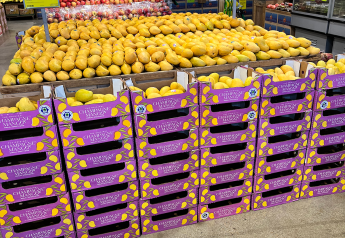L.A. retail changes continue
Big changes likely are in store for the Southern California retail scene, but as of yet, no one knows for sure how extensive those changes will be or what impact they’ll have.
Aldi, the Germany-based grocery discounter that already has 1,600 stores in the eastern part of the U.S., quickly is making inroads in California.
Amazon recently announced its intention to acquire Austin, Texas-based Whole Foods Market.
And two California supermarket chains, one based not far from Los Angeles, have merged to form one of the nation’s largest Hispanic grocery chains.
So far, Aldi has not made much of an impact with its 38 new stores in Southern California, said Dick Spezzano, president of Spezzano Consulting Services, Monrovia, Calif.
But, according to media reports, the chain plans to add 20 more stores within the next year.
That could force nearby competitors like Albertsons and the Kroger Co.’s Ralphs to respond by cutting prices, Spezzano said.
If a Ralphs store does more than $500,000 worth of business per week, and a nearby Aldi location lures away $10,000, the impact is minimal, he said.
But if three or four Aldi stores take away $40,000 in business, “That’s when it starts to hurt,” he said.
California Aldi stores are more attractive than those in the East, where the company has launched a massive modernization program, Spezzano said.
The California stores “are looking like they need to look to compete here,” he said.
And they appear to be aimed at a “medium” economic demographic rather than the low end of the economic spectrum, as they are in the East.
But they do have one thing in common with stores in the East: “Pricing is very, very aggressive,” he said.
Spezzano said that on a recent visit to a Southern California Aldi store, where customers bag their own groceries, he saw avocados — albeit small ones — priced at two for $1, Well-Pict strawberries for $1.99 per pound and Chiquita bananas for 39 cents a pound.
The prices all were everyday — not sale — prices.
Spezzano said the chain probably will have 250 to 300 California stores within five years.
“The distribution center (in Moreno Valley) is capable of taking care of 1,000 stores,” he said.
The trend among consumers has been to pay fewer store visits per week but to visit a wider range of store formats, Spezzano said.
“(Aldi) will be one more destination for a customer,” he said. “It will take another portion of those shopping trips away from the conventional supermarkets.”
On the Whole Foods front, Spezzano said that once the acquisition of the natural foods chain by Amazon is finalized, it will be anything but business as usual.
“They’re going to be in for a lot of changes,” he said. “It will be worth watching what they do with it.”
Amazon paid “a super-premium price” for the chain — about $29 million per store, Spezzano estimated.
“Pricing has to go down,” he said, and so will headcount — primarily at the corporate level, but in stores, as well.
“They have a huge amount of labor in stores,” he said.
The chain already uses electronic price signs in its 365 by Whole Foods chain launched in the Los Angeles area last year.
“That kind of technology can reduce costs dramatically,” he said.
Spezzano also expects a transition to more centralized buying, even in produce, to help drive down costs.
Finally, it was announced in early July that Ontario, Calif.-based Cardenas Markets, a group of 31 stores, many of which are in the Riverside/San Bernardino area east of Los Angeles, is merging with San Jose, Calif.-based Mi Pueblo, which operates 15 stores in the Bay Area, forming one of the nation’s largest Hispanic supermarket chains.
The combined chains will operate under Cardenas Markets LLC, with Cardenas CEO John Gomez holding that position under the combined business.
Each banner will operate separately, managed under one executive team, according to a news release.







